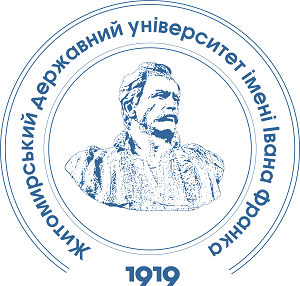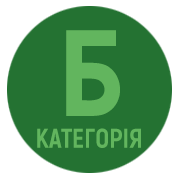SCIENTIFIC APPROACHES TO DEFINING THE CONCEPT OF INTELLECTUAL POTENTIAL AS A SOCIO-GEOGRAPHICAL CATEGORY
DOI:
https://doi.org/10.32782/naturaljournal.13.2025.15Keywords:
education, war, decentralization, territorial community, social sphere, national securityAbstract
This article examines the features of the definition of the concept of “intellectual potential” as a socio- geographic category. Scientific works in the field of economics, sociology, pedagogy, sociology and psychology are analyzed in order to comprehensively understand this concept as an important identifier of the economic and social development of individual territorial communities or regions, oblasts in conditions of decentralization and war. The place of intellectual potential in maintaining economic and social security as components of national security in modern conditions is determined.In today’s conditions of rapid transformations of the information society and intellectualization of regional development, the relevance of researching intellectual potential as an important factor in socio-geographic processes is growing. Despite the growing number of publications on this topic, the concept of intellectual potential still does not have a well-established interpretation in domestic geographical science.The purpose of the article is to systematize scientific approaches to determining the essence of intellectual potential and justify the feasibility of considering it as a separate socio-geographic category.The study used such methods as comparative and analytical analysis of scientific sources, systematization of the terminological apparatus, logical and theoretical generalization, as well as elements of systemic and structural-functional approaches.As a result of the study, the main scientific paradigms of the interpretation of intellectual potential were identified – economic, sociological, educational and geographical; they were compared and the specifics of the spatial dimension of this concept were emphasized. The author’s definition of intellectual potential as a spatially organized complex of human resources with a high level of education, knowledge activity and ability to innovative development was proposed.The scientific novelty lies in clarifying the content of the category “intellectual potential” in the context of spatial differentiation and regional development. The practical significance lies in the possibility of applying the research results to assess the intellectual resources of territories, planning educational and innovation policies at the regional level.
References
Бутнік-Сіверський О. Трансформація інтелектуальної власності в інноваційний продукт. Інтелектуальний капітал. 2003. № 5. С. 3–12.
Геєць В., Семиноженко В. Інноваційні перспективи України. Харків : Константа, 2006. 272 с.
Жарінова А. Розвиток економіки знань у контексті формування людського капіталу. Ефективна економіка. 2013. № 11. [Електронний ресурс] URL: http://www.economy.nayka.com.ua/?op=1&z=2536 (дата звернення 15.07.2025).
Лапотков В. Поняття і види інтелектуального потенціалу компаній в ІТ-секторі. Економіка та суспільство. 2024. № 61. С. 94–100. https://doi.org/10.32782/2524-0072/2024-61-94.
Маліцький Б., Попович О. Стан використання вітчизняного інтелектуального потенціалу. Інтелектуальна власність. 2005. № 12. С. 7–13.
Нич Т. Географія інтелектуального потенціалу Хмельницької області. Київ : Принт-Сервіс, 2017. 182 с.
Паламарчук М., Паламарчук О. Економічна і соціальна географія України з основами теорії : навчальний посібник. Київ : Знання, 1998. 416 с.
Перерва П., Марчук Л. Інтелектуальний потенціал як економічна категорія. Вісник Національного технічного університету «Харківський політехнічний інститут». Серія «Економічні науки». 2018. № 15 (1291). С. 53–63.
Попович О. Науково-технологічна та інноваційна політика: основні механізми формування та реалізації. Київ : Фенікс, 2005. 226 с.
Сіденко С. Інтелектуальний капітал у стратегії інноваційного розвитку України. Вісник Київського національного університету імені Тараса Шевченка. Міжнародні відносини. 2023. Т. 57. № 1. С. 95–100. https://doi.org/10.17721/1728-2292.2023/1-57/95-100.
Ситник Й. Інтелектуальний потенціал як фактор інтелектуалізації систем менеджменту підприємства. Вісник Національного технічного університету «Харківський політехнічний інститут». Серія «Економічні науки». 2012. № 9. С. 271–277. [Електронний ресурс] URL: https://ela.kpi.ua/handle/123456789/2988 (дата звернення 15.07.2025).
Тищенко В. Економіка знань як актуальна основа сучасного розвитку України та її регіонів. Харків : Вид. ХНЕУ, 2014. 272 с.
Ткаченко В. Інтелектуальний потенціал в основі розвитку виробничих сил і виробничих відносин. Дніпро : Моноліт, 2008. 274 с.
Філиппова С., Ковтуненко К. Інтелектуальний потенціал як головний чинник формування інтелектуального капіталу. Вісник Національного університету «Львівська політехніка». Менеджмент та підприємництво в Україні: етапи становлення і проблеми розвитку. 2013. № 776. С. 81–86. [Електронний ресурс] URL: https://ena.lpnu.ua/items/098df848-54fb-4cec- ab33-d02f461a0819 (дата звернення 15.07.2025).
Boisot M.H. Knowledge Assets: Securing Competitive Advantage in the Information Economy. Oxford : Oxford University Press, 1998. 284 р.
Bontis N. Managing organisational knowledge by diagnosing intellectual capital: framing and advancing the state of the field. International Journal of Technology Management (IJTM). 1999. Vol. 18. № № 5/6/7/8. Р. 433–462. https://doi.org/10.1504/IJTM.1999.002780.
Drucker P.F. Post-Capitalist Society. New York : Harper Business, 1993. 232 р.
Edvinsson L., Malone M. Intellectual Capital: Realizing Your Company’s True Value by Finding Its Hidden Brainpower. New York : Harper Business, 1997. 225 р.
Foray D. The Economics of Knowledge. Cambridge : MA ; MIT Press, 2004. 275 р.
Nonaka I., Takeuchi H. The Knowledge-Creating Company. New York : Oxford University Press, 1995. 284 р.
Roos J., Roos G., Dragonetti N.C., Edvinsson L. Intellectual Capital: Navigating the New Business Landscape. London : Macmillan Press, 1997. 143 р.
Stewart T.A. Intellectual Capital: The New Wealth of Organizations. New York : Doubleday/ Currency, 1997. 278 р.
Sveiby K.E. The New Organizational Wealth: Managing and Measuring Knowledge-Based Assets. San Francisco : Berrett-Koehler, 1997. 275 р.
Zayachuk M., Kostashchuk I., Darchuk K., Bilous Yu. Geoinformation technologies as a basis for research of the optimal location of general secondary education institutions (on the example of Chernivtsi city territorial community). Journal of Geology, Geography and Geoecology. 2021. Vol. 30. № 2. Р. 389–401. https://doi.org/10.15421/112135.







